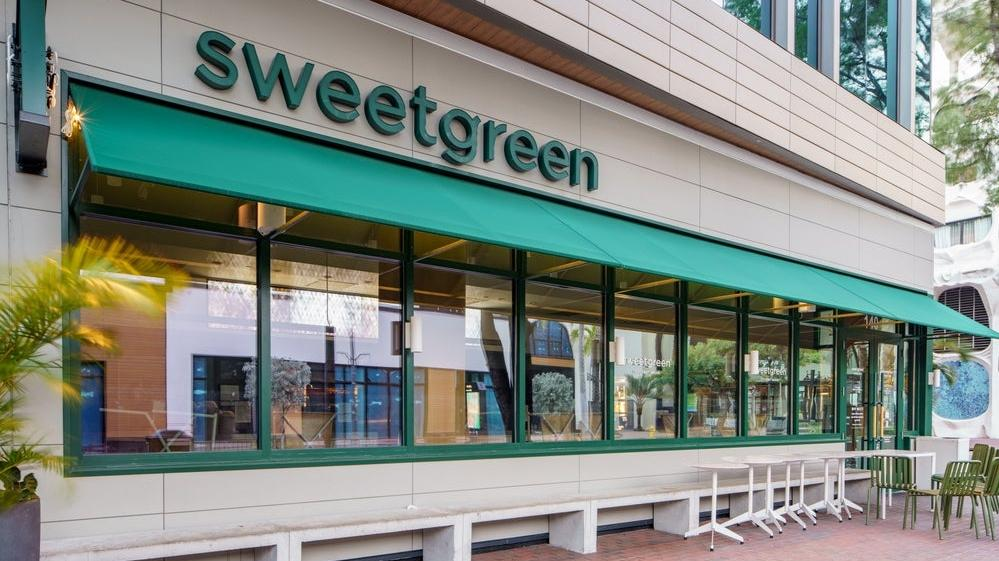Sweetgreen Is Still Losing Money (Just Not As Much)
The salad chain hasn’t been profitable for 17 years.
For a business not to turn a profit for nearly two decades and still be around, apparently no worse for wear, might be hard for the average person to wrap their head around. It's not how we assume businesses work, much less restaurants. Yet somehow Sweetgreen, everyone's favorite beleaguered salad-forward fast casual restaurant chain, has managed to stay alive and record somewhat improved financials in its most recent quarterly earnings report.
Is Sweetgreen’s business suffering?
Per the report, Sweetgreen's revenue for the first quarter of 2023 was $125.1 million, a 22% increase from the previous year. However, that's revenue, not profit—the business suffered an overall net loss of $33.7 million in Q1. How could this possibly be spun as good news? Because it's an improvement over the net loss of $49.7 in Q1 2022.
Same-store sales did increase 5% last quarter. That might sound like it pales in comparison to the 35% bump in same-store sales in Q1 2022, but of course in 2022 the company was working back upward from a pandemic-related dip in foot traffic in 2021. As you can see, with Sweetgreen, context is everything.
On the surface, these first-quarter results appear to be a mixed bag of good and bad news, but Sweetgreen is choosing to position the figures as a sign of a brighter future. The company's leadership credits the launch of its loyalty program, Sweetpass, and the future of the brand's upcoming fully automated kitchens as playing a role in helping the chain meet its potential.
This is, in a way, all part of the plan. In its 2021 IPO filing, Sweetgreen acknowledged its total lack of profits, writing, "To date, we have not achieved profitability in any fiscal period, in large part because we have consciously invested in our operating and technology foundation."
"I am pleased with our first quarter results," said Sweetgreen CEO Jonathan Neman in the most recent press release. "We have a number of exciting catalysts in the second quarter, including Sweetpass, our loyalty program, and a broader menu, which we believe will positively impact our guest experience and drive positive momentum throughout the balance of the year and beyond."
How Sweetgreen’s new Sweetpass works
While Sweetpass is free to join, Sweetpass+ is a paid subscription that costs $10 a month and gives members "$3 off daily sweetgreen orders, priority sweetgreen support, delivery perks, premier access to merch drops, and exclusive sweetgreen experiences." The free Sweetpass tier allows customers to earn freebies by completing "challenges," as well as granting early access to new menu items and merch drops.
The new Infinite Kitchen, Sweetgreen's first fully automated kitchen, will be opening in Naperville, Illinois. Details surrounding the exact mechanics of how this location will function have not been made clear, reports Restaurant Dive. Yet the company's leadership anticipates the automated production process will save the brand money on labor, increase efficiency, and increase profit margins, maybe even leading to a profitable quarter someday.
How Sweetgreen hopes to turn a profit
Plans for automation and loyalty programs are a notable shift away from Sweetgreen's prior strategy, which prioritized growth by opening lots of new locations in lots of new places. Those plans have since been scaled back, and the new focus seems to be on maximizing the business at existing locations and finding ways to improve margins.
Sweetgreen might have an optimistic outlook on its current financial situation, but it's also true that in a post-pandemic world, Sweetgreen's bounce-back has not been as strong as its competitors. The returns to office life has been slow and uneven, and Sweetgreen has spent years positioning itself as the quintessential power lunch for the working professional. Travel has also increased since the pandemic kept people indoors, and because of that, Sweetgreen, located primarily in commercial areas, has seen less traffic. People on vacation don't necessarily want to order a salad from a chain restaurant.
As Eater points out, Sweetgreen's years of net losses make more sense when you view them as a tech disruptor rather than a traditional restaurant. It's uncertain whether robotic kitchens and paid subscriptions for bowls will be enough to end its 17-year streak of unprofitability, but Sweetgreen has made it this far, so that must mean it's doing something right—or at least making the right promises to its investors.
